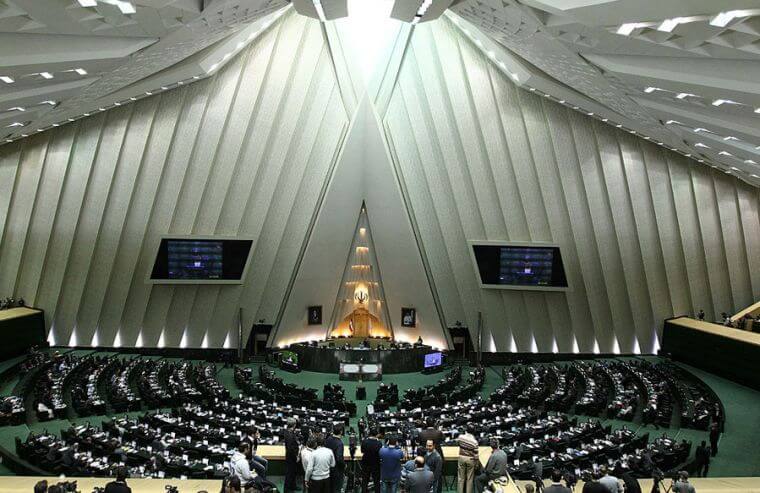The Islamic Republic's parliament is currently looking at regulations to allow authorities to execute anyone who speaks or sends images to foreign media outlets, according to a report by Iran International. This latest development comes as the people of Iran continue to protest the Islamic government into the third month over the death of 22-year-old Mahsa Amini at the hands of the Islamic morality police for her hijab wear.
Since the death of Amini, the Islamic authorities have been trying to restrict the spread of information inside and outside the country to the international community.
In its latest move, the regime plans to enact laws that would pave the way for executing individuals who are helping the international community hear the voices of opposition. According to reports, when finalized, the new law would aid the Islamic Judiciary to issue a death sentence for anyone contacting foreign-based media.
The plan would "intensify the punishment of collaborators with the actions of hostile countries against national security and interests" and describes any cooperation with "hostile countries, including the U.S. government," as spying.
Additionally, it considers any such cooperation as "corruption on earth," which would be punishable by death, according to the Islamic Republic's Penal Code.
In Article 286 of the Islamic Republic's Constitution, any serious disturbance in the public order, causing insecurity or significant damage to people or public and private property, or spread of corruption or prostitution on a large scale, is considered a ‘corruption on earth’ offense and will lead to a death sentence.
On the streets of Iran, mobile phones and proxy-servers getting them onto the Internet have made it possible for citizens to record acts of arrest, beatings, and deaths by security forces, which was not possible several decades ago in Iran.
Outlets like Twitter, Instagram, Facebook, and other social media platforms have exposed violations of citizens' rights and have worried the Islamic Republic as their actions are on full display globally.
According to reports, a committee composed of several representatives from the Intelligence Organization of the Islamic Revolutionary Guard Corps (IRGC), the Intelligence Ministry, the Army, and Parliament’s National Security Committee is deciding which individuals will be subjected to the new law.
In one of the new measures by hardliners, filming any criminal acts on the streets, including those leading to injury or death, would be punishable by law.
"In case of sending the videos or images to hostile or foreign networks, the perpetrator will be sentenced to the maximum penalty," according to the bill's text.
According to experts familiar with the functions of the Iranian parliament, after getting the approval of the parliament's criminal law committee, the plan must be approved by the representatives in a public session where it must be approved by the Guardian Council and notified by the president to become a law.
The head of Iran's Judiciary, Gholam-Hossein Mohseni Eje, called for quick indictments of anyone who publishes a "false statement or an undocumented claim" against Iran's security forces. He called on Islamic judges to summon such individuals to the country as soon as possible. According to Eje, those arrested who cannot provide documentation for their claims are "acting in line with the enemy's goals."
Experts say these new measures would grant the Judiciary powers to indict and convict individuals who use freedom of speech and criticize the authorities, a common practice in Iranian courts. Since protests began in September, the regime has engaged in Internet shutdowns, arbitrary arrests, brutal crackdowns, and threats against Iranians in Iran and abroad. Even with the Internet shutdown in Iran, protesters have been able to find other ways to make their voices heard.
Iranian officials have engaged in efforts to block numerous foreign-based media outlets like Iran International, BBC, VOA, and Radio Farda, which are providing up-to-date information about the popular uprisings in Iran and the regime's brutal actions.
In early November, Iran's Intelligence Minister Esmail Khatib said that the Islamic Republic regards Iran International as "a terrorist organization," saying that workers of the media outlet and those affiliated with it will be pursued by the Ministry of Intelligence.










